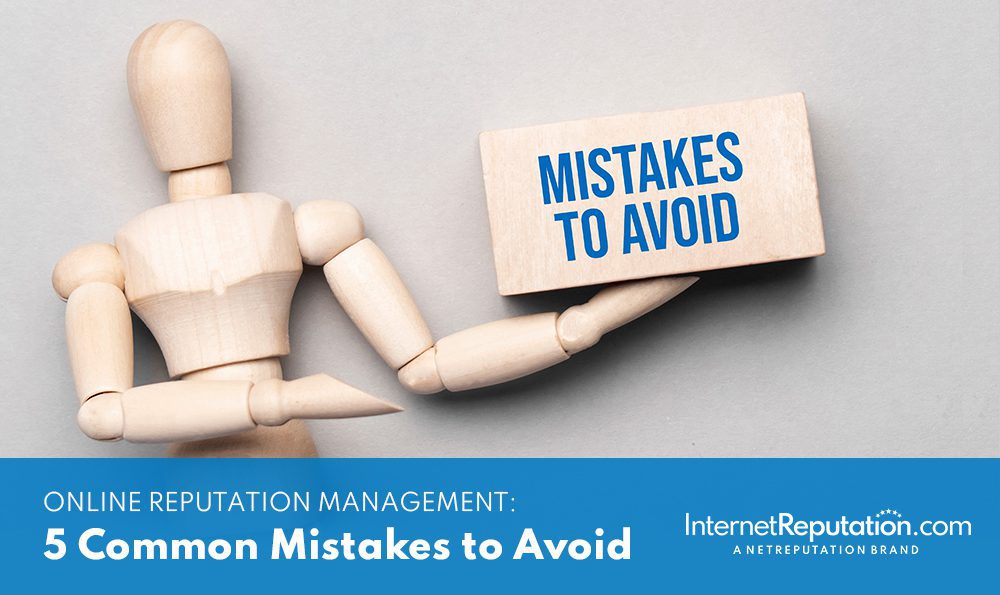Online Reputation Management: 5 Common Mistakes to Avoid

A good online reputation is essential for individuals and businesses in the digital era. Online Reputation Management (ORM) is about controlling how you’re viewed online. We’ll cover its significance, common errors, and how to fix them, like neglecting negative reviews or underutilizing social media. Join us to enhance your digital image.
Key Takeaways:
- Ignoring negative reviews can damage your online reputation – address them promptly and professionally.
- Monitoring online mentions is crucial to maintaining your brand’s reputation.
- Create a consistent brand image across all platforms to build trust with your audience.
What is Online Reputation Management?
Online Reputation Management refers to monitoring and influencing a brand’s online reputation through various strategies and techniques.
In today’s digital age, online reputation management plays a crucial role in shaping how a company is perceived by its audience. Maintaining a positive brand image online can increase trust, credibility, and customer loyalty. Monitoring social media platforms is essential to stay attuned to what customers say about a brand and promptly address negative feedback. Actively managing negative online reviews and mentions, whether by responding to reviews or creating engaging content, can help businesses stay relevant and competitive online.
Why is Online Reputation Management Important?
Effective Online Reputation Management is crucial for maintaining a positive brand image, engaging with customers on social media accounts, tracking brand mentions, and enhancing search engine optimization efforts.
Managing the company’s online reputation also involves closely monitoring brand mentions across various online platforms, analyzing customer feedback, and promptly addressing negative comments or reviews. By actively managing reputation online, companies can foster trust and credibility among their target audiences, increasing customer loyalty and positive word-of-mouth referrals. A strong reputation management strategy can help mitigate potential crises and safeguard brand equity. It also plays a pivotal role in improving search engine visibility, as positive online sentiment can boost organic rankings and attract more potential customers to the brand’s website.
What are the Common Mistakes in Online Reputation Management?
Several common mistakes in Online Reputation Management include ignoring negative reviews, neglecting social media presence, overlooking brand sentiment, and managing negative reviews ineffectively.
One of the biggest pitfalls in online reputation management is mishandling negative feedback. When businesses ignore negative reviews instead of addressing them promptly and professionally, it can severely damage their brand reputation. For instance, failing to respond to a dissatisfied customer’s complaint on a public platform can result in a negative perception among potential customers.
Another critical error is the lack of brand monitoring. By disregarding brand mentions across various online channels, companies miss out on valuable insights into customer sentiment and fail to engage with their audience effectively. This leads to a disconnect between the brand and its target audience, ultimately impacting customer retention and brand loyalty.
1. Ignoring Negative Reviews
One critical mistake in Online Reputation Management is ignoring negative reviews, leading to dissatisfied customers, negative comments, and a tarnished brand image.
When negative reviews are left unattended, they can spread quickly through word-of-mouth or online platforms, influencing potential customers and damaging your brand’s credibility. Ignoring customer feedback risks losing current clients and prevents the opportunity to showcase your commitment to addressing concerns. Engaging transparently with unsatisfied customers and demonstrating a willingness to rectify issues and turn negative experiences into positive outcomes is crucial. Effectively managing negative reviews can enhance consumer trust, build loyalty, monitor brand mentions, and transform detractors into advocates.
2. Not Monitoring Online Mentions
Monitoring online mentions can result in missed opportunities to engage with customers, track brand sentiment, and participate in relevant online conversations.
One key benefit of monitoring brand mentions in online reputation management is staying informed about how your brand is perceived in the digital landscape. Through social media monitoring, businesses can track conversations, identify emerging trends, and understand customer feedback in real-time. This proactive approach allows companies to swiftly address issues, capitalize on positive engagements, and foster stronger relationships with their audience. By engaging with online communities, brands can enhance their reputation, build trust, and differentiate themselves from competitors.
3. Lack of Consistency in Brand Messaging
Maintaining consistency in brand messaging is crucial for establishing a strong brand identity, effectively conveying the brand’s tone, and consistently delivering positive content.
In the digital marketing era, where online reputation management plays a pivotal role, ensuring a unified brand voice across various online platforms is essential. A coherent communication strategy helps build trust and credibility with customers and shapes the brand’s perception of the market. When positive content is shared consistently, it reinforces the brand’s values and fosters customer loyalty.
4. Not Utilizing Social Media
Neglecting to utilize social media as a reputation management tool can hamper a brand’s outreach, engagement with customers, and overall online presence.
Today, social media channels are pivotal in shaping how the public perceives a brand. By actively engaging in social media management, companies can swiftly monitor and address negative feedback and amplify positive testimonials to build trust and credibility.
Social media marketing strategies are essential for creating a strong online presence, boosting brand visibility, and fostering a loyal community of followers who advocate for the brand organically. Through targeted community engagement, brands can connect with their audience more personally, humanizing their image and fostering long-term relationships.
5. Not Responding to Feedback
Failing to respond promptly to customer feedback can impact the customer experience, lead to missed opportunities, and hinder the effective resolution of issues.
When negative feedback is left unaddressed, it can quickly escalate and tarnish a company’s reputation. Timely responses are crucial in demonstrating that customer concerns are valued and taken seriously. By engaging with customers proactively, businesses can prevent potential crises and build trust and loyalty.
User-generated positive reviews are valuable assets that can attract new customers and enhance brand credibility.
Efficient issue resolution demonstrates a commitment to customer satisfaction and can turn a dissatisfied customer into a loyal advocate.
Embracing a responsive online reputation management approach is essential in today’s digital age.
How to Avoid These Mistakes?
To avoid common mistakes in Online Reputation Management, businesses can seek assistance from reputable online reputation management services, collaborate with experienced reputation management firms, and utilize effective reputation management tools.
One foundational strategy to enhance online reputation management is to monitor regular online mentions and reviews across various platforms. By investing in top-notch online reputation management software, companies can stay informed about their brand sentiment and address any negative feedback promptly. Fostering active customer engagement through social media interactions and personalized responses can help build a positive brand perception. Seeking guidance from reputable online reputation management firms can provide expert insights and tailored solutions to bolster your brand’s online reputation further.
1. Monitor Online Mentions Regularly
Regularly monitoring online mentions is essential for staying updated on customer feedback, tracking brand sentiment, and actively participating in online conversations.
Consistent brand monitoring is crucial in online reputation management efforts. By closely monitoring platforms like online review sites, websites, social media, and online forums, businesses can gain valuable insights into what customers say about their products or services. Proactively engaging with customers not only shows responsiveness but also helps in resolving any issues before they escalate. Participating in relevant online discussions allows brands to showcase their expertise and build credibility among their target audience.
2. Respond Promptly and Professionally
Responding promptly and professionally to positive or negative feedback is crucial for managing brand reputation, effectively addressing issues, and mitigating negative search results.
Acknowledging customer concerns helps demonstrate empathy and a customer-centric approach when handling feedback. Additionally, engaging with clients openly and transparently showcases a commitment to resolving issues and building trust. By actively monitoring brand sentiment across various platforms, companies can gain valuable insights into customer perceptions and preferences, allowing them to tailor their responses accordingly.
In cases of negative feedback or reputation crises, a swift and strategic response is essential to prevent further damage. Proactively engaging dissatisfied customers can turn a negative experience into a positive one and showcase a commitment to continuous improvement. Timely and genuine responses often resonate well with audiences, contributing positively to brand sentiment and fostering customer loyalty.
3. Create a Consistent Brand Image
Establishing a consistent brand image involves defining the brand’s tone, monitoring brand mentions across owned media channels and multiple platforms, and ensuring a cohesive brand identity across all platforms.
One critical step in defining a brand’s tone is clearly defining the values and messaging that resonate with the target audience. This sets the foundation for creating content that aligns with the brand identity.
Actively monitoring brand mentions through social listening tools allows you to stay informed about conversations surrounding your brand. Addressing any negative feedback swiftly is essential to maintaining a positive brand reputation.
Ensuring a unified voice and visual appearance across all owned media channels helps reinforce brand recognition and trust among consumers.
4. Utilize Social Media for Reputation Management
Leveraging social media for reputation management involves establishing a strong presence, engaging with followers across various platforms, and utilizing social media channels for brand communication and promotion.
Active participation in social media marketing is crucial in shaping how your brand is perceived digitally. Regularly sharing engaging content, responding to comments and messages, and actively participating in conversations can build a loyal community of followers who support and advocate for your brand. This two-way interaction fosters audience engagement and boosts your brand presence.
Each social media platform offers unique features and caters to different demographics, allowing you to diversify your outreach. From visually appealing Instagram posts to informative Twitter updates and interactive Facebook content, utilizing various paid media platforms helps reach a wider audience and strengthen your brand’s online visibility.
5. Encourage Positive Reviews and Feedback
Encouraging positive reviews and customer feedback can build a positive online reputation, generate user-generated content, and enhance a business’s online brand credibility.
One effective strategy to foster positive reviews is providing exceptional customer service, ensuring every interaction leaves a lasting positive impression. It’s also vital to actively engage with customers across various platforms, such as social media and review sites, to show appreciation for their feedback. Incentivizing satisfied customers to share their experiences through discounts or loyalty perks can motivate them to leave glowing reviews. Companies can optimize their listings on review platforms and directories to make it easier for customers to leave feedback. By consistently encouraging positive reviews, businesses can increase online visibility, attract customers, and establish themselves as industry leaders.
Conclusion
A robust Online Reputation Management strategy is essential for safeguarding a brand’s digital reputation, maintaining a strong online presence, and fostering positive customer interactions.
Companies can promptly address negative feedback by actively monitoring brand mentions to prevent potential reputational damage. Engaging with customers on social media platforms and review sites can enhance customer experience and satisfaction, ultimately building brand loyalty. Consistently delivering on promises and maintaining transparency are crucial to upholding credibility in the digital sphere. Understanding the impact of digital reputation on brand perception underscores the significance of implementing effective online reputation management processes.
Frequently Asked Questions
How does neglecting your online presence affect your reputation?
Neglecting your online presence can negatively impact your reputation. It allows for sharing inaccurate or outdated information and potential customers to form negative opinions about your brand.
Why is it important to respond to both positive and negative reviews?
Responding to positive and negative reviews is important because you value your customers’ feedback and actively work to improve their experience. It also allows you to address any issues and potentially turn a negative experience into a positive one.
Can engaging in online arguments harm your online reputation?
Yes, engaging in online arguments can harm your online reputation. It can make you appear unprofessional and may escalate the situation. It is best to handle negative feedback or reviews calmly and politely.



